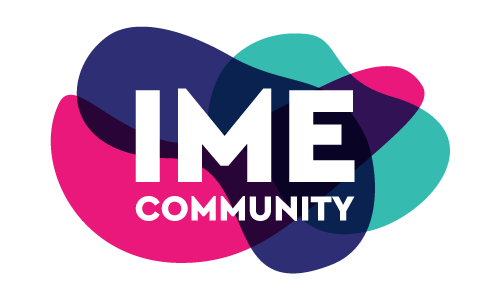
Teens and Bullying
Hey,
Whether you are a teen, parent, physician, healthcare provider, teacher or school administrator, listen up! I want you to know that I’m coaching you on a very sensitive topic in this first blog of my ongoing series. In my teens and weight bullying series, I’m talking about bullying and its harmful effects, how common it is, who’s at risk, the different types of bullying, the causes of bullying, but, most importantly, what you can do about it.
Did you know that any type of bullying affects your health?
Make sure you work with your pediatrician or family doctor and/or seek help from a licensed mental health provider to address your individual situation and potential mental health effects.
Anti-Bullying Information and Resources
I would love for you to go to stopbullying.gov to check out their helpful resources.
Also, I’m not going to get into bullying and intersectionality in this first blog. Intersectional bullying happens based on race, gender, income, sexual orientation, etc. I’ll talk more about intersectional bullying in upcoming blogs in this series.
Basically, a bully is someone who is willing to weaponize what they perceive as a weakness, with their only goal to make themselves feel powerful.
Bullies seek to control the narrative.
Maybe they were bullied? It’s often the case. When I coach teens who have been bullied and parents of children and teens who have been weight bullied, I try to stay out of getting in the lane of the “bully/victim”. In other words, stay out of trying to figure out the bully’s motivation for bullying. They have shown you who they are. Let’s focus on what you can do.
We can’t control or fix or solve the bully’s actions, but we can certainly create a plan that includes boundaries so it stops for you if you’re being bullied.
One of the main reasons to set boundaries is to make sure you don’t internalize the bully’s messaging. I don’t want you to feel powerless and believe what the bully says about you or feel like if you change yourself, the bullying will stop or you will finally “fit in”.
Another harmful consequence of weight bullying in teens is restricting yourself by dieting, which causes harm on top of harm. The bullying is harmful, let’s not create more harm for ourselves with the punishing restriction of calories.
By the way, if you cope with the stress of bullying by overeating or binging, give yourself a massive break. It’s okay. You’re not alone.
Check out my IME 5 Steps to say I aM mE, which are my 5 easy steps to full love and acceptance and the first step to self-love superpower.
Recognize, that self-acceptance is available to you all the time. If you’re bullied, pull out your nice warm invisible self-acceptance blanket and say,
“I fully love and accept myself.”
Try some other mantras like,
“Bullying is unacceptable. I accept myself no matter what.”
Put your hand over your heart and give yourself a nurturing hug.
- “I’m not powerless. I am not stuck.”
- “This is so hard. I won’t be hard on myself.”
- “I can set healthy boundaries for myself.”
- “What they said has nothing to do with me.”
- “I will set boundaries and let them be them and live my amazing life.”
Causes of Bullying
Have you been bullied because of your weight?
Or, for any reason?
Studies show that it’s more common than we like to think. There are multiple causes of bullying.
Unfortunately, some people still believe enduring bullying is a rite of passage into adulthood. Nothing could be further from the truth.
Bullying is a preventative health issue.
It’s important to recognize and address bullying or it can cause long-term harm.
According to a 2012 Weight-Based Victimization (WBV) Study, published in Pediatrics, “WBV is prevalent in treatment-seeking youth, who report victimization from peers (92%), friends (70%), parents (37%), and teachers (27%).”
If you’re a physician, let’s start by listening and validating the stories of our patients’ experience with weight-based victimization.
Life in America is a bullying obstacle course for youth with weight struggles.
Bullying Stories
“I’m ostracized everywhere I go because of my weight. Sitting in class. Everywhere.”-Jessica, age 18
When I heard Jessica, one of my patients say this, it broke my heart. It’s just not one of those bullying stories that anyone should have to endure.
Jessica (not her name) is absolutely wonderful and is living a very successful life. She’s so strong and has been through and overcome so much in her life. The last thing she needs to deal with is weight-based bullying.
My initial thought was give me the names of whoever is bullying you and I’ll make some calls. I felt so protective of Jessica. If only it were that simple. A trusted adult makes a call and it stops.
It may not be that simple, but know that you are not alone.
You are not alone.
You Are Neither Alone Nor Powerless

There are trusted adults who want to help you and will create a plan to stop the bullying. It may be as simple as making a phone call, but usually you need to put a bit more planning in place. Learning how to set healthy boundaries for yourself is a skill that you are not taught in school. More often than not, families and society can be pretty intrusive and boundaryless.
Even if you are a victim of bullying, you are not powerless.
Set Boundaries and Work With Your Support System
I coach a lot on boundaries and relationships in IME Community.
I coach on setting some boundaries for yourself so you are able to show up with clarity for yourself.
First, bullying is not acceptable and must be recognized and called out as unacceptable.
Next, let’s step up as trusted adults and work with the school (teacher and/or counselor) if that’s where the bullying is happening, and create a plan to stop the bullying so school is a safe place.
Here’s what’s needed from parents, physicians and educators to help stop bullying:
- Support
- Build Skills
- Connect to resources
- School Involvement
- Referral to mental health provider
- Follow-up to check in
How to support the “bully/victim” is important too. A harsh approach does not work.
Make sure you check out stopbullying.gov and make sure you Join IME Community to get even more coaching to create healthy boundaries!
IME Community is a safe space, a Body Positive Community for Teens in a Body Negative World!
Self-love superpower,
Dr. Karla, ActivistMD



